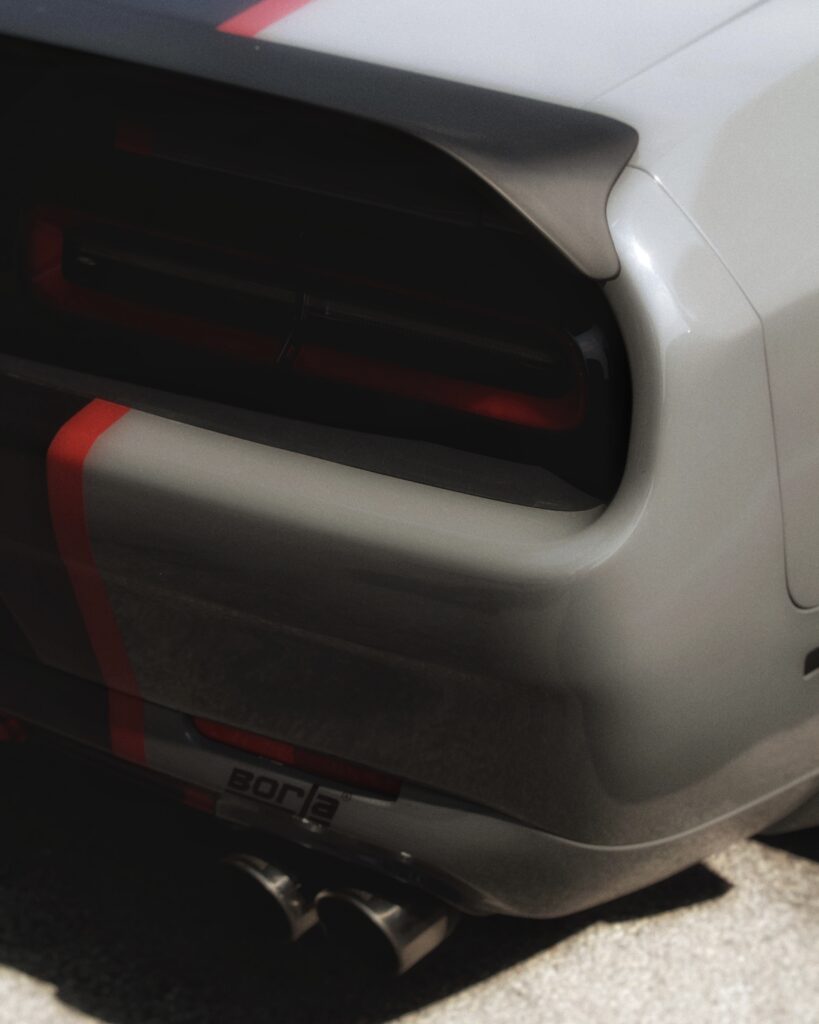Imagine driving down the road, windows down, enjoying the breeze and the sound of your engine purring. Suddenly, you feel a strange vibration throughout the car, and your once smooth ride becomes bumpy and uncomfortable. What could be causing this unsettling sensation? In this article, we will explore the reasons behind a vibrating exhaust system and what it means for the health of your vehicle. Hold onto your seats as we uncover the secrets behind this mysterious phenomenon.

Understanding Your Vehicle’s Exhaust System
Components of your exhaust system
The exhaust system in your vehicle is a crucial component that helps to safely and efficiently eliminate the harmful gases produced during combustion. It consists of several key parts including the exhaust manifold, catalytic converter, muffler, and tailpipe. The exhaust manifold collects the exhaust gases from the engine’s cylinders and channels them towards the catalytic converter. Inside the catalytic converter, harmful pollutants such as carbon monoxide and nitrogen oxides are converted into less harmful substances. The muffler is responsible for reducing the noise produced by the exhaust gases, while the tailpipe releases the treated gases into the open air.
Function of the exhaust system
The primary function of the exhaust system is to ensure the safe expulsion of harmful gases from the engine and to minimize the noise produced during the process. Additionally, the exhaust system also helps to improve fuel efficiency, enhance engine performance, and reduce emissions. It plays a vital role in maintaining the overall health and functionality of your vehicle.
Identifying a Vibrating Exhaust System
Signs and symptoms of a vibrating exhaust
A vibrating exhaust system can manifest in various ways, and it is essential to be aware of the signs and symptoms that indicate this issue. Some common indications include:
- Unusual vibrations felt in the vehicle, particularly in the cabin or through the steering wheel
- A rattling or buzzing sound coming from the exhaust system
- Excessive exhaust noise or a change in the tone of the exhaust
- Noticeable shaking of the exhaust pipe or components
- Performance issues, such as reduced power or acceleration
Different types of exhaust system vibrations
There are different types of vibrations that can occur in the exhaust system, each indicating a specific problem. Vertical vibrations, for example, may suggest a broken or loose exhaust mount, while horizontal vibrations could be a sign of a faulty or damaged exhaust pipe. Diagnosing the type of vibration can help identify the root cause of the issue effectively.
Causes of a Vibrating Exhaust System
Broken or loose exhaust mounts
One of the most common causes of a vibrating exhaust system is broken or loose exhaust mounts. Over time, these mounts can wear out or become corroded, leading to improper support for the exhaust components. This can result in excessive movement and vibrations within the system.
Exhaust leaks
Exhaust leaks can also contribute to a vibrating exhaust system. When there is a leak, the exhaust gases can escape at points other than the designated exit, causing the system to vibrate. Leaks can occur due to corrosion of the pipes, failed gaskets, or loose connections.
Clogged catalytic converter
A clogged catalytic converter can lead to a vibrating exhaust system as well. When the catalytic converter becomes clogged with debris or excessive carbon buildup, it restricts the flow of exhaust gases, causing backpressure in the system. This increased pressure can result in vibrations.
Faulty exhaust pipe
A faulty or damaged exhaust pipe can also be a culprit behind a vibrating exhaust system. Cracks, holes, or loose sections in the pipe can disrupt the smooth flow of exhaust gases, causing vibrations as they pass through.
Effects of a Vibrating Exhaust System
Reduction in fuel efficiency
A vibrating exhaust system can have a detrimental effect on fuel efficiency. When the exhaust system is not functioning properly, the engine may have to work harder to overcome the increased backpressure or compensate for other issues. This can lead to an increase in fuel consumption and lower overall efficiency.
Possible damage to other car parts
Continuous vibrations can result in secondary damage to other car parts. The vibrations can cause stress and strain on neighboring components, leading to premature wear or even damage. For example, excessive vibrations can cause damage to the brackets or heat shields near the exhaust system.
Impact on vehicle performance
A vibrating exhaust system can negatively affect the overall performance of your vehicle. The vibrations can disrupt the smooth running of the engine, leading to reduced power, slower acceleration, and a general decrease in performance. This can be especially noticeable during acceleration or under heavy loads.

Dangers of Ignoring a Vibrating Exhaust System
Potential for increased repair costs
Ignoring a vibrating exhaust system can lead to more significant problems down the line and potentially result in increased repair costs. As the vibrations persist, they can cause further damage to the exhaust system and surrounding components. Fixing the issue promptly can help prevent additional wear and tear, saving you money in the long run.
Risk of toxic gas exposure
A vibrating exhaust system can increase the risk of toxic gas exposure. When there are leaks or damaged components in the exhaust system, harmful gases like carbon monoxide can escape into the cabin of the vehicle. Carbon monoxide is odorless and can be extremely dangerous, leading to symptoms like dizziness, nausea, and even death in severe cases.
Hazardous for road driving
Driving with a vibrating exhaust system can be hazardous, especially at higher speeds. The vibrations can affect the stability and control of the vehicle, making it more difficult to handle on the road. This can compromise your safety and the safety of others on the road.
Examining Your Vehicle for Exhaust System Issues
Inspection of exhaust mounts
To identify and address a vibrating exhaust system, it is crucial to inspect the exhaust mounts. Visually examine the mounts and look for any signs of damage, such as cracks, wear, or corrosion. Additionally, check for any looseness or play in the mounts by gently attempting to move the exhaust system.
Checking for leaks
Inspect the entire exhaust system for any signs of leaks. Look for traces of black carbon deposits or soot around the connections, joints, and exhaust components. If you notice any leaks, it is essential to repair or replace the affected parts promptly.
Assessment of the catalytic converter
Check the catalytic converter for any signs of clogging or damage. A clogged converter may have a buildup of carbon or debris. If you suspect a clogged catalytic converter, consult a professional mechanic for proper diagnosis and advice on how to proceed.

Professional Diagnosis of a Vibrating Exhaust System
When to consult a professional mechanic
If you are unsure about the cause of the vibrating exhaust system or unable to determine the specific issue after inspecting it yourself, it is best to consult a professional mechanic. They have the expertise and specialized equipment to diagnose the problem accurately and recommend the necessary repairs.
Understanding mechanic’s diagnosis
When you consult a professional mechanic, they will conduct a thorough inspection of your vehicle’s exhaust system to identify the underlying cause of the vibrations. They may use diagnostic tools and perform various tests to pinpoint the issue. Once the problem is identified, they will explain their diagnosis to you in detail, providing information on what needs to be repaired or replaced.
Estimation of repair cost
Once the mechanic has diagnosed the issue, they can provide you with an estimate of the repair costs. This estimate will include the price of any necessary replacement parts, labor charges, and any additional fees. It is advisable to get multiple estimates from different mechanics to ensure you are getting a fair price for the repairs.
Driving with a Vibrating Exhaust System
Impact on driving comfort
Driving with a vibrating exhaust system can significantly impact your overall driving comfort. The vibrations can create an uncomfortable and potentially distracting experience, making it more difficult to handle the vehicle properly. This can be particularly noticeable during longer drives or on rough roads.
Implications on vehicle safety
A vibrating exhaust system can compromise the safety of your vehicle. The vibrations can affect the stability and handling, potentially leading to difficulties in controlling the vehicle. This can increase the risk of accidents, especially in situations where quick maneuvering or precise driving is required.
Possible effect on vehicle’s resale value
Ignoring a vibrating exhaust system can have a negative impact on the resale value of your vehicle. Potential buyers may view a vibrating exhaust system as a sign of poor maintenance and neglect. By addressing the issue promptly and ensuring the exhaust system is in good condition, you can maintain the value of your vehicle and increase its appeal to prospective buyers.
In conclusion, a vibrating exhaust system is not something to be taken lightly. It can indicate underlying issues that require attention to ensure the safety, performance, and longevity of your vehicle. By understanding the components, functions, signs, and causes of a vibrating exhaust system, you can take appropriate measures to diagnose, repair, and maintain your exhaust system effectively. Remember, regular inspections and prompt repairs are key to avoiding further damage, increasing repair costs, and ensuring a smooth and safe driving experience.
